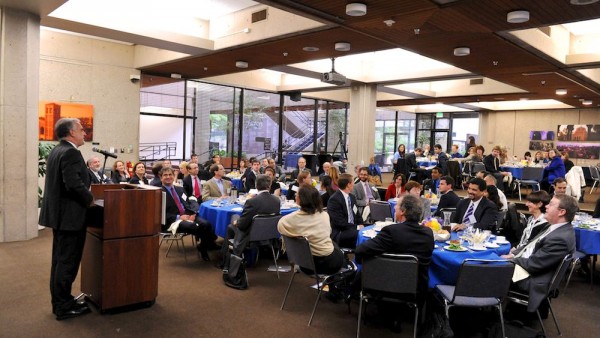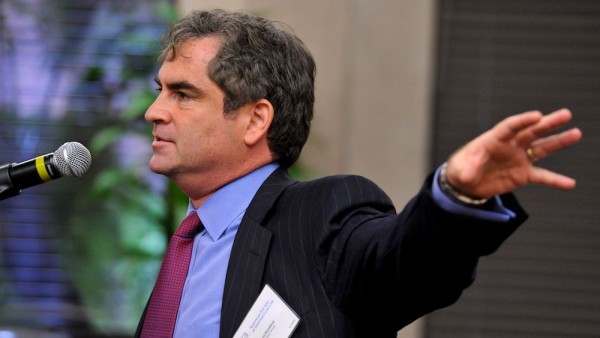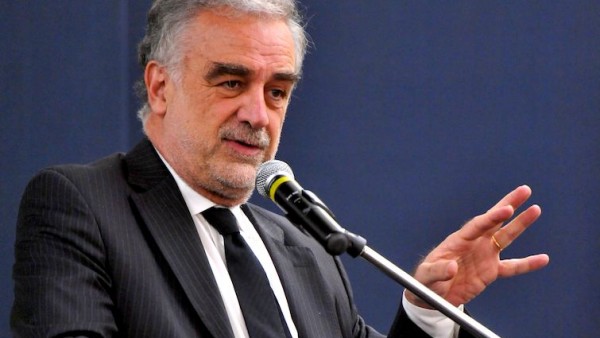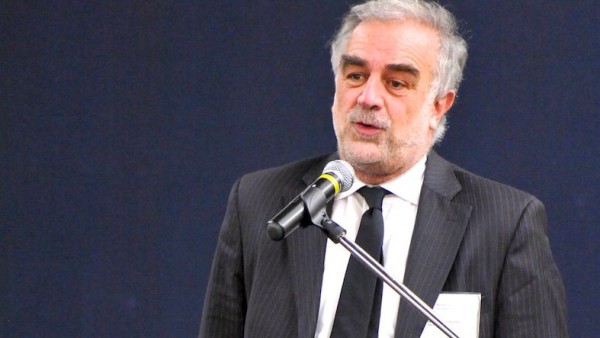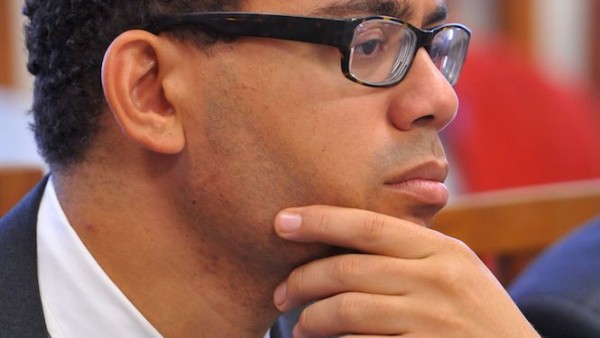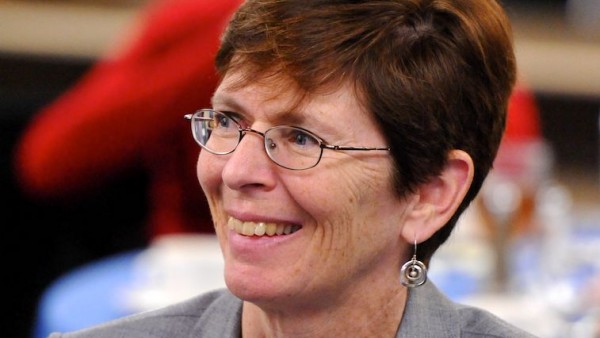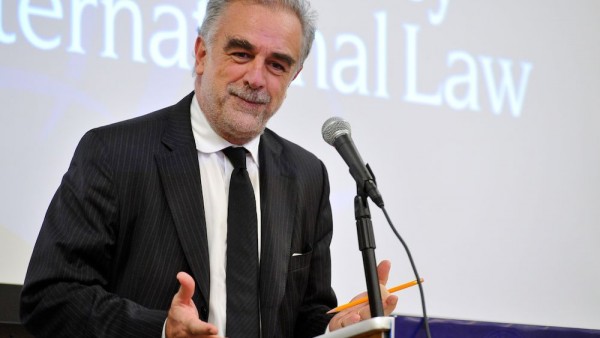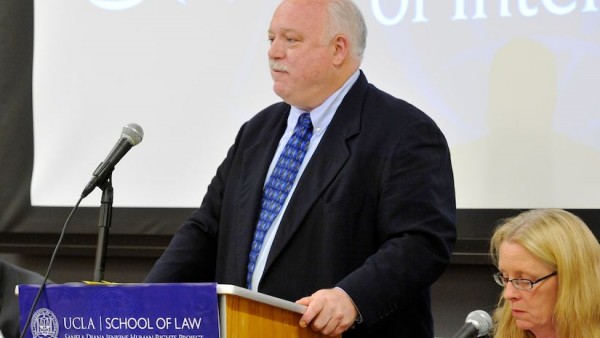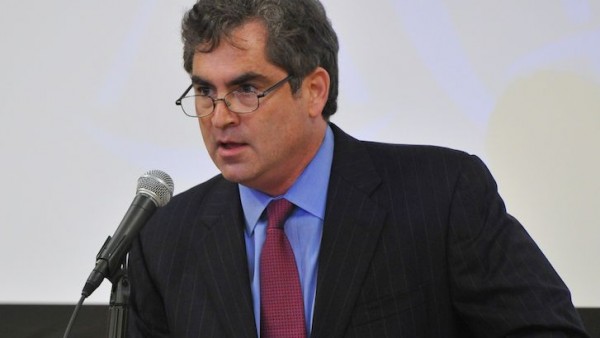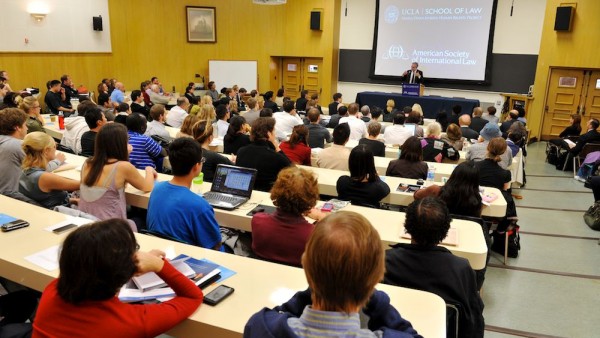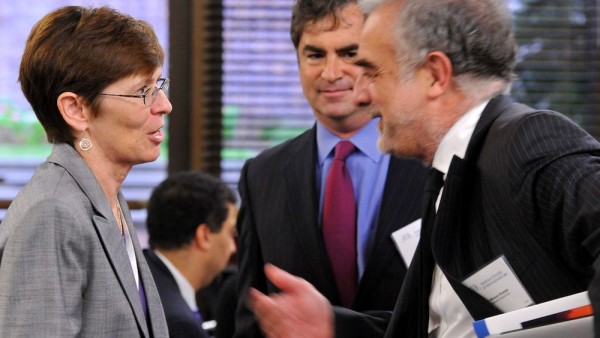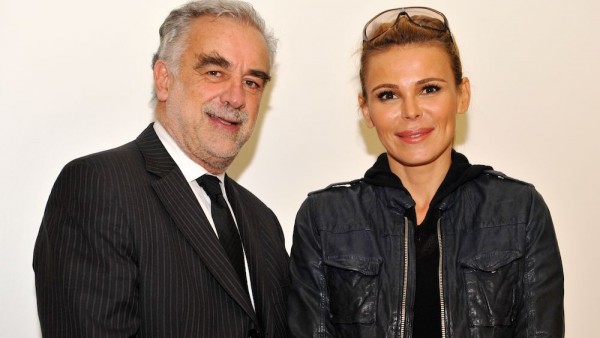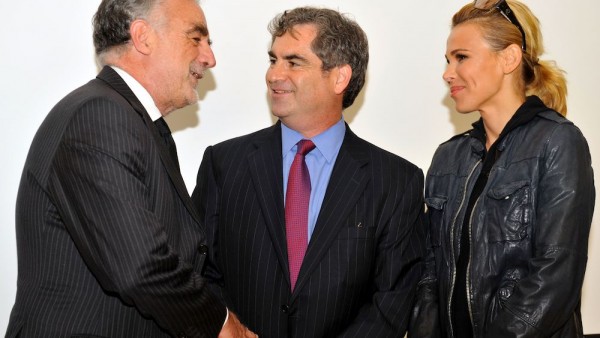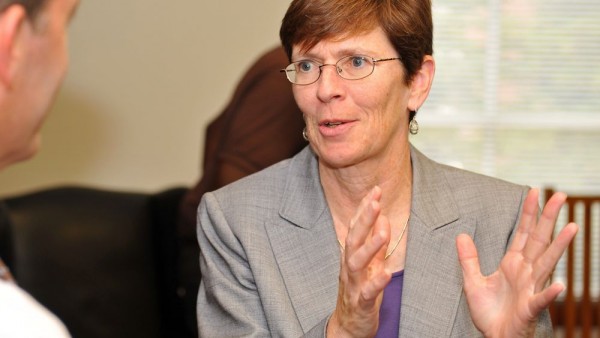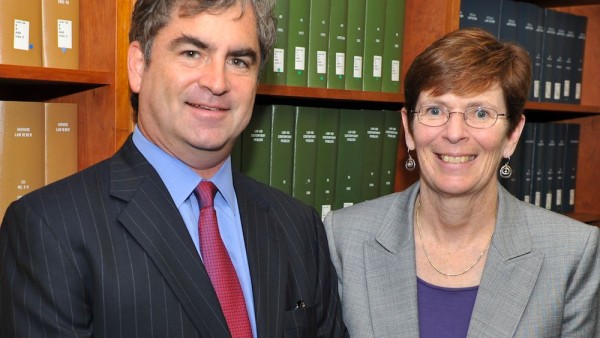American Society of International Law (ASIL) 2011 Midyear Meeting and Research Forum
I support UCLA School of Law and founded the Sanela Diana Jenkins Human Rights Project at UCLA School of Law. The Project was one of the sponsors and organizers of the American Society of International Law (ASIL) 2011 Midyear Meeting and Research Forum, held on November 3rd, 4th, and 5th at the UCLA School of Law. The meeting is for legal practitioners, scholars, judges, and others interested in international law.
I was one of the “others” who are interested in the international law and, as a war refugee, I have some practical experience with it.
I’m not a legal scholar or practitioner, but I believe that it is through a system of international laws that we can advance justice, reduce human rights violations, and punish those that do damage to either.
In particular, I wanted to meet with International Criminal Court Prosecutor Luis Moreno-Ocampo. We have worked together on the ICC Forum for the last year and a half—I support the forum, Mr. Moreno-Ocampo poses “questions of interest”, and UCLA’s Professor Richard Steinberg runs it. It’s a collaboration.
At the ASIL Midyear Meeting, Mr. Moreno-Ocampo gave a Keynote Address: “The Libya Case: A New Paradigm in International Relations or Business as Usual?” Libya is unique case in the international criminal law—it’s one of the few times in human history that crimes against humanity—mass rapes, torture, murder of civilians—were being investigated and prosecuted as the civil war conflict was ongoing. And Mr. Moreno-Ocampo was investigating both sides of the civil war conflict—no one is immune from the law! I lived through a brutal conflict, and I support ICC in its efforts to protect civilian populations from similar ravages and destruction inflicted upon innocents.
It was a very interesting event. Among those presenting were:
- David D. Caron, ASIL President
- Donald Francis Donovan, Debevoise & Plimpton
- Lucy F. Reed, Freshfields Bruckhaus Deringer
- Edward T. Swaine, George Washington University Law School
- Paul Hoffman, Schonbrun, De Simone, Seplow, Harris and Hoffman, LLP
- Chimene Keitner, University of California-Hastings College of Law
- Kristin Myles, Munger Tolles & Olson, LLP
- Jared Jussim, Sony Pictures Entertainment, Inc.
- Lawrence Liu, NBC Universal Inc.
- David P. Kaplan, Warner Brothers Entertainment
- Dean Marks, Warner Brothers Entertainment
- David D. Caron, Berkeley Law School
- Donald Francis Donovan, Debevoise & Plimpton, LLP
- Alan Sykes, Stanford Law School
- Makau Mutua, University at Buffalo Law School
- Mark Drumbl, Washington & Lee University School of Law
- Carlos M. Vazquez, Georgetown University Law Center
- Laura Dickinson, George Washington University Law School
- Nienke Grossman, University of Baltimore School of Law
- Chris Whytock, University of California-Irvine
- Jonathan Zasloff, UCLA Law School
- Asli Ue. Bali, UCLA School of Law
- Mary Ellen O’Connell, University of Notre Dame Law School
- Maximo Langer, UCLA School of Law
- Edwin Smith, University of Southern California
- Richard H. Steinberg, UCLA School of Law
One of the speakers was Judge Joan E. Donoghue of International Court of Justice.
The topics that related to human rights and international justice ranged from “Killing in the Fog of War,” presented by Adil Ahmad Haque and “From Gender-Based Violence to Women’s Violence in Haiti,” presented by Benedetta Faedi-Duramy, to “How Serious Are International Crimes? The Expansion of International Criminal Law and the Future of the Regime,” presented by Margaret M. de Guzman and “Unspeakable Memories, Unattainable Truths: Victim-Witness Testimonies in the Khmer Rouge Trials,” presented by Laura Marschner.
Supporting events like this helps bring together politicians, professors, practictioners, industry people, and students to discuss these important topics. By hosting that at UCLA and adding students to the mix, we’re raising awareness in this next generation and giving them tools to protect human rights around the world.

